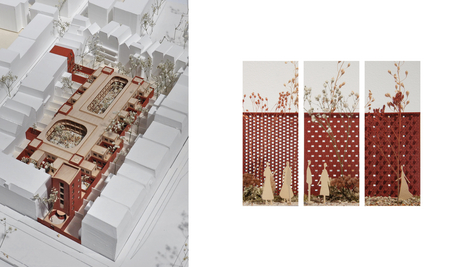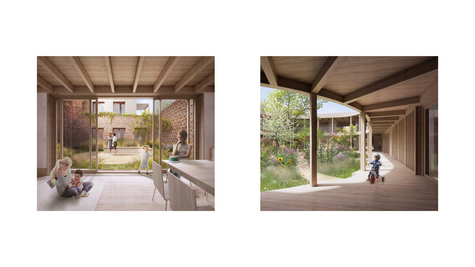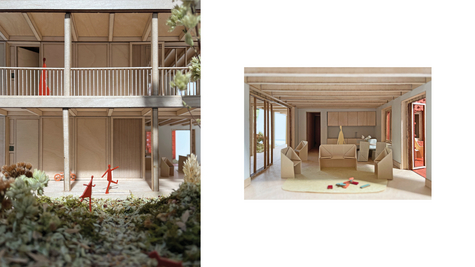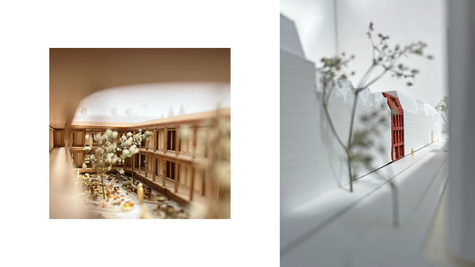Alice Dicker Quintino
Shelter
An architectural typology to host women victim of domestic violence
According to the World Health Organization, "violence against women is a major human rights violation and a global public health concern of pandemic proportions". The statistics show that one-third of all women worldwide are subjected to violence at least once in their lives. The high majority of these violence cases relate to a former or current intimate partner, which is classified as domestic violence. When experiencing it, women are in need of support, often of a place to stay, to feel sheltered and to heal, where legal and psychological support is available.
Shelters for women have been present in the Netherlands since the 70s, shaped by the available resources, possibilities and the development of an approach that has kept evolving in the past five decades. This graduation project consists of rethinking women's refuge from an architectural perspective, with the firm belief that spatial design decisions can highly contribute to the recovery process women victim of domestic violence go through.
Located along the edge of Amsterdam's historical centre, the chosen project site consists of an existing city block surrounded by diverse urban atmospheres. Each of the three programmatic sections of a shelter on this site - the institution, the living and the healthcare facilities - can find their own ideal relationship to the city.
The design approach finds inspiration in the traditional Dutch 'hofjes'. Centrally located in the city context and surrounded by the urban built structure, the hofjes enclose a fascinating protected inner world with its own character and atmosphere, organised around a communal garden. Inspired by this tradition, the site's inner block is transformed to host women victim of domestic violence in a protective environment, while still enabling them to be part of society and city life.
As observed in diverse interviews carried out during the research phase, the paradoxical relationships between seclusion and inclusion, and privacy and collectivity are key notions when imagining a shelter. The proposed design creates spaces for a recovery process to take place where shared experiences are encouraged, while individuality and privacy are preserved.
From arrival to departure, a domestic environment is imagined around a sequence of enclosed gardens, which provide a secluded reality orientation regarding time and place. The gardens play an important role in shaping the transitional sequences between city and shelter, essential to enabling the unique atmosphere of the block's inner world, a place to feel sheltered and recover.
Graduation date: 15 June 2023
Graduation committee: Marcel Lok (mentor), Pnina Avidar, Hannah Schubert
Additional members for the exam: Susana Constantino, Paul Kuipers










